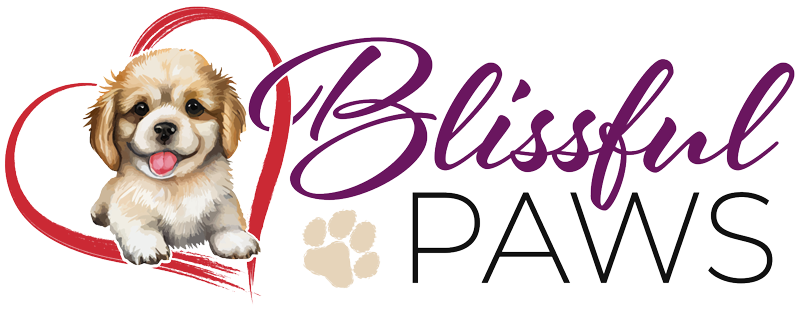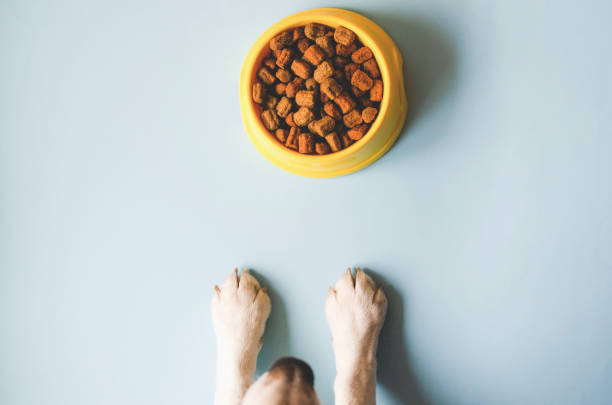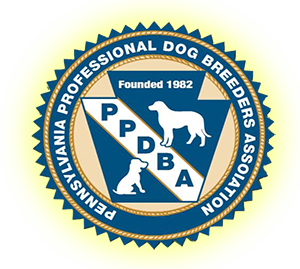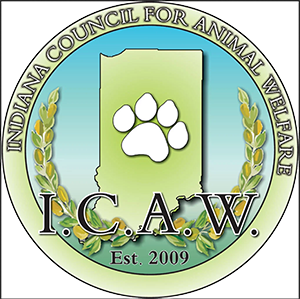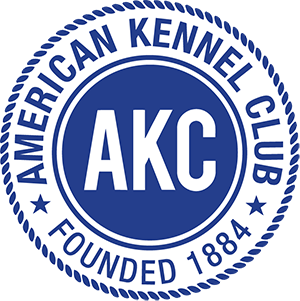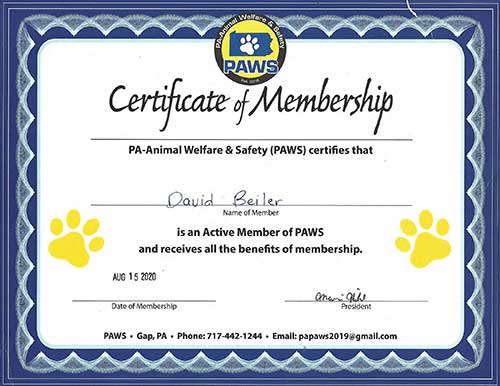Introducing your adopted puppy to your home? On the first day, you will need to determine how you plan to feed your new family member, as it is crucial in their adjustment to your home. There are a lot of specifics when it comes to feeding puppies. Finding the right food with the right nutrients is vital for proper growth and development. Below is a guide providing you with everything you need to know about feeding puppies.
Choosing the Right Food
Many puppies need their mother’s milk or a puppy milk supplement in their early weeks of life. Blissful Paws’ puppies are available to adopt after this stage and we will provide a bag of the specific food we use so you can start with a familiar option. Puppies will grow the fastest during their first six months, they will need animal-based proteins, fatty acids, calcium, and amino acids nutrients to grow properly. Different puppy breeds will require different nutrients to grow, consult with your veterinarian to determine what your puppy needs.
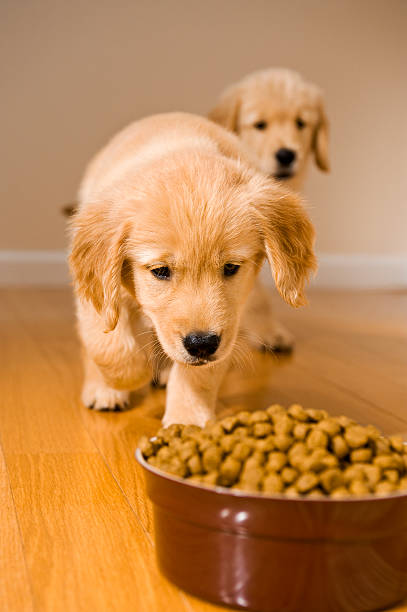
Golden Retrievers
Golden Retrievers need food designed for larger breeds to support their bone and joint development. Puppies need calcium and phosphorus for their growing bones, but for golden retrievers, you will need to monitor how much calcium they get to prevent their bones from growing too fast.
Goldendoodles
Goldendoodles are active dogs, they need a high-quality, protein-rich diet to support their energy levels. Use fish, beef, and chicken as their primary ingredients to give them the protein they need. If your puppy is teething, use a combination of wet and dry food to make chewing easier.
Establish a Schedule
A consistent eating schedule will help your puppy maintain a positive relationship with food and understand feeding times. It will make the potty training process easier as they will be able to regulate themselves depending on the schedule you set. A best practice for establishing a schedule is to coordinate feeding times with when you eat. This will help your puppy understand that they don’t eat at the table so they won’t beg for human food.
Where to Feed Your Puppy
Golden Retrievers and Goldendoodles are very active and social dogs. When feeding them, use a quiet place in the house to ensure they are not distracted while eating. If you have more than one puppy, feed them at the same time but separate them. This will ensure they don’t try to compete with each other and steal each other’s food.
Portions
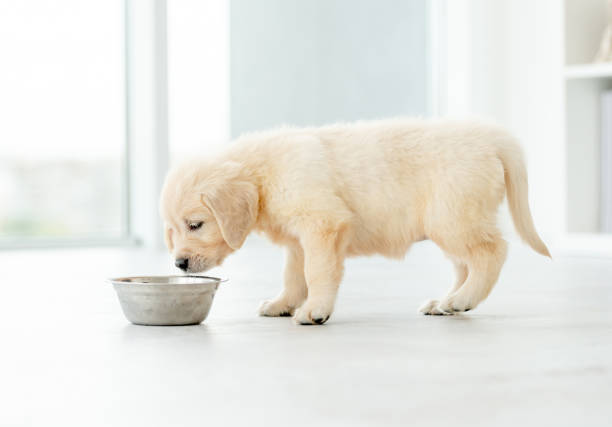
Puppy food is higher in calories than adult dog food, therefore puppies need larger portions since they are growing. As puppies grow, their energy will increase. Monitor their weight to ensure they continue to get the right amount of daily calories. Generally, you want to adjust the amount of food they get based on their age and the rate they are growing. The exact amount of food you need to feed your puppy depends on their age, breed, and medical conditions. Make sure you consult with your veterinarian to ensure you are giving them the right amount.
Portions By Age
When you are first introducing your puppy to food, start by feeding them 3-4 smaller portions a day until they are 12 weeks old. Once they are 12 weeks old, you can feed them three times a day with slightly larger portions until they are six months old. After six months, you can feed them twice a day, making the portions larger. When they are being fed twice a day, slowly start incorporating adult dog food into their meals to help them transition into eating dog food once they are a year old.
Practices to Avoid
- Don’t free-feed your puppy. Free-feeding is the practice of having food out at all times for the puppy to eat whenever they want, but this should be avoided because the puppy can gain too much weight if they are not portion-controlled.
- Don’t let your puppy eat human food. Human foods can have toxins in them that can give your puppy digestive issues. The main foods that are toxic to dogs are raw meat, chocolate, garlic, onions, and grapes.
- Don’t settle for the cheap stuff – your puppy deserves the best!
- Avoid using “meat meal” in their food. It is too generic and doesn’t give as much protein as actual meat, like chicken, beef, or fish.
- Don’t make dietary changes without consulting your vet as drastic changes can cause digestive problems. When making changes in their diet, gradually incorporate the new food with their current food to prevent stomach issues.
- Don’t let them eat too many treats, it can upset their balanced food diet. Give treats in moderation.
- Don’t forget to give them water during their meals so they can stay hydrated.
Want to learn more about taking care of puppies? Check out Blissful Paws’puppy care page to learn everything you need to prepare for your new puppy, from before adoption to training. Find the perfect puppy for your family by checking out our Golden Retriever, Goldendoodle, and Mini Goldendoodle puppies available for adoption.
